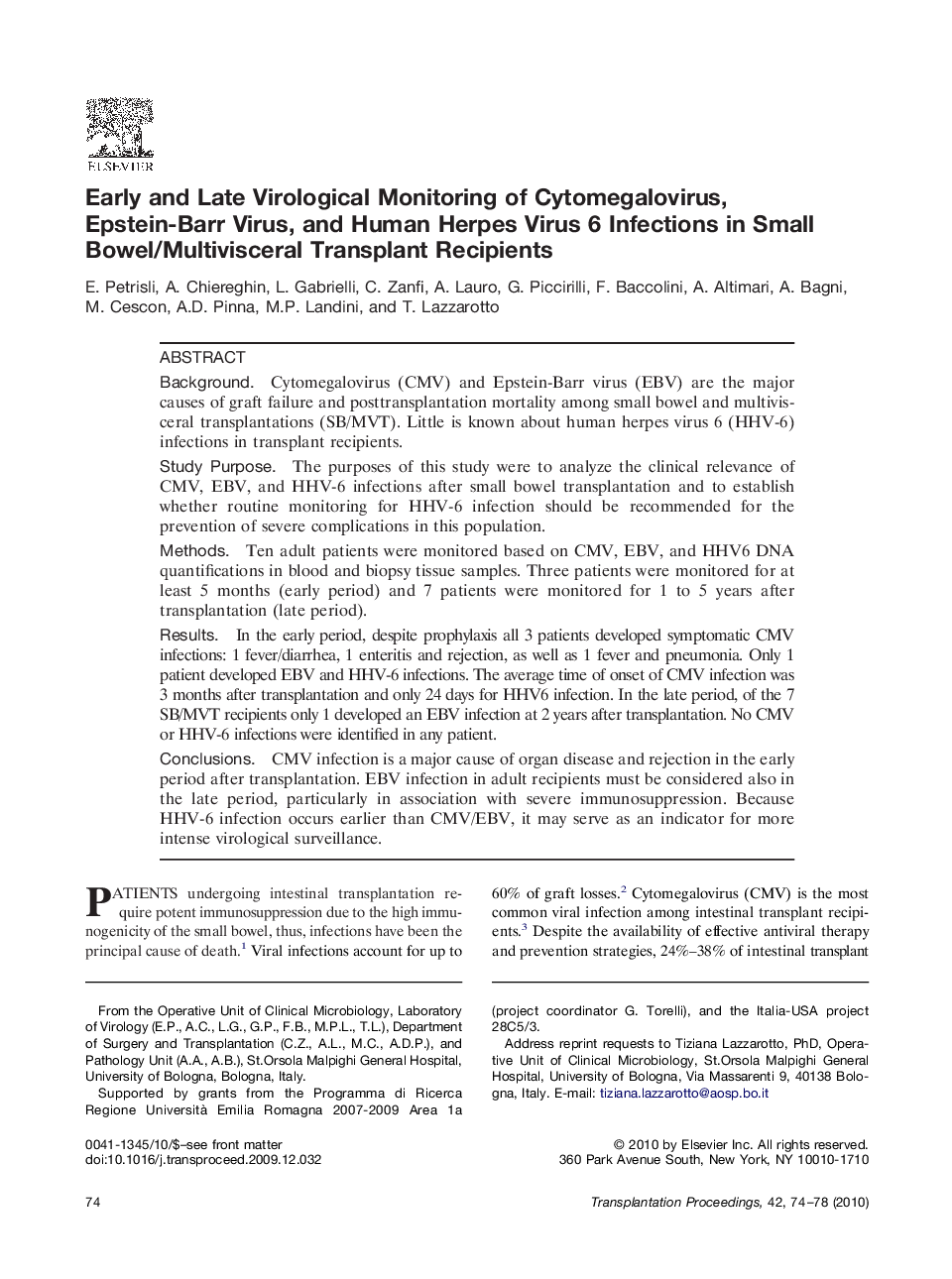| Article ID | Journal | Published Year | Pages | File Type |
|---|---|---|---|---|
| 4260823 | Transplantation Proceedings | 2010 | 5 Pages |
BackgroundCytomegalovirus (CMV) and Epstein-Barr virus (EBV) are the major causes of graft failure and posttransplantation mortality among small bowel and multivisceral transplantations (SB/MVT). Little is known about human herpes virus 6 (HHV-6) infections in transplant recipients.Study PurposeThe purposes of this study were to analyze the clinical relevance of CMV, EBV, and HHV-6 infections after small bowel transplantation and to establish whether routine monitoring for HHV-6 infection should be recommended for the prevention of severe complications in this population.MethodsTen adult patients were monitored based on CMV, EBV, and HHV6 DNA quantifications in blood and biopsy tissue samples. Three patients were monitored for at least 5 months (early period) and 7 patients were monitored for 1 to 5 years after transplantation (late period).ResultsIn the early period, despite prophylaxis all 3 patients developed symptomatic CMV infections: 1 fever/diarrhea, 1 enteritis and rejection, as well as 1 fever and pneumonia. Only 1 patient developed EBV and HHV-6 infections. The average time of onset of CMV infection was 3 months after transplantation and only 24 days for HHV6 infection. In the late period, of the 7 SB/MVT recipients only 1 developed an EBV infection at 2 years after transplantation. No CMV or HHV-6 infections were identified in any patient.ConclusionsCMV infection is a major cause of organ disease and rejection in the early period after transplantation. EBV infection in adult recipients must be considered also in the late period, particularly in association with severe immunosuppression. Because HHV-6 infection occurs earlier than CMV/EBV, it may serve as an indicator for more intense virological surveillance.
